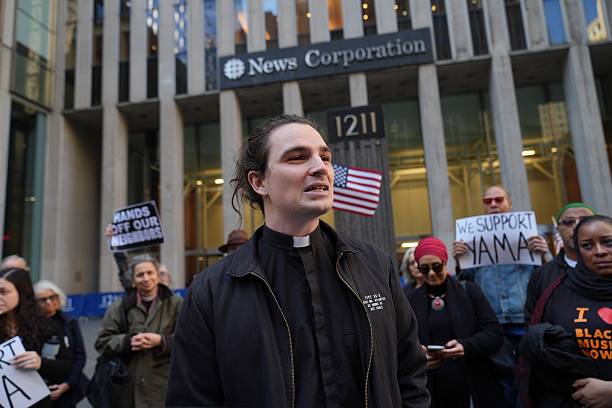An American missionary has been abducted in Niamey, Niger’s capital. The details, as always, arrive in fragments: three armed men, a Toyota Corolla, the darkness between Tuesday night and Wednesday morning. Local sources say the man, whose name has not been released, was likely driven out of the city before anyone could intervene.
No group has yet claimed responsibility. But in Niger, the absence of a claim tells its own story. For years, the country has existed on the fault line between fragile governance and the reach of jihadist networks factions loyal to al-Qaida and the Islamic State that have long found refuge in the porous Sahel. The violence has become so ambient, so woven into daily life, that even an abduction in the capital no longer shocks; it simply confirms the slow widening of the danger zone.
A security official, speaking under condition of anonymity, suggested what many already suspect that the kidnappers were linked to the Islamic State. The investigation continues, though in Niger’s current atmosphere, “continuing” is often another word for “without resolution.”
According to local reports, the kidnapped man served as a pilot for Serving in Mission, an evangelical agency with roots in humanitarian and religious work across Africa. Missionaries like him operate in an uneasy space between faith and risk drawn by conviction, sustained by service, but forever exposed to the volatile politics of the regions they enter.
From Washington, the State Department struck its customary note of measured concern. A spokesperson confirmed awareness of the reports and said embassy officials in Niamey were coordinating with local authorities. “It is a top priority for the Trump Administration to look after the safety of every American,” the statement read a line both sincere and helplessly familiar in its repetition.
The U.S. Embassy followed with a security alert, warning Americans of the “heightened risk of kidnapping throughout Niger, including in the capital.” It’s a phrase that lands heavily: even in the capital. The implication being that the circle of safety, once thought to include the seat of government, has collapsed.
To understand this unraveling, you have to look at the new order taking shape in Niger. In 2023, a military junta overthrew the democratically elected president, Mohamed Bazoum, upending what little political stability the country still had. The generals who seized power have since severed ties with many of Niger’s Western partners including the United States, which had stationed troops there and turned instead toward Moscow for security and diplomatic support.
For Niger’s people, this realignment was framed as sovereignty reclaimed. For many outsiders, it was a retreat from a fragile experiment in democracy. And for missionaries, aid workers, and civilians, it has meant the erosion of what fragile protection Western presence once offered.
“Security has worsened in Niger in recent months,” observed Ulf Laessing, head of the Sahel program at the Konrad Adenauer Foundation. His words carry the dry precision of a policy analyst, yet beneath them lies a deeper lament. The old patterns are re-emerging: the return of kidnapping as a “business,” the monetization of fear. What began decades ago with the abduction of tourists has morphed into a targeted campaign against aid workers and those who embody Western humanitarian ideals.
Laessing doesn’t mince words: “Kidnapping is a multimillion-dollar business.” That sentence alone captures the strange alchemy of modern jihadism a movement that merges ideology with commerce, belief with profit. Every abduction ripples outward. Each ransom reshapes policy, shifts alliances, and drains what little confidence remains among foreign donors.
You might wonder how a single kidnapping one man, one vehicle, one desperate night could alter so much. But the Sahel’s economy of fear depends on perception. As aid groups pull out, as Western staff are withdrawn, the infrastructure that sustains local communities begins to collapse. Poverty deepens. And with it grows the allure of the very militants who exploit that desperation a cycle so perverse and predictable it’s almost liturgical.
There is a tragic irony here. Missionaries like the abducted pilot enter countries such as Niger with a kind of luminous faith one that insists on meaning amid chaos. Their work embodies both courage and vulnerability: the conviction that light belongs even where the world insists on shadow. Yet the boundaries between service and risk have never been thinner.
For many believers, such events are read through a spiritual lens: the cost of calling, the price of devotion. But to those who analyze these conflicts geopolitically, the story fits into a bleaker narrative the steady retreat of humanitarian presence, the hollowing out of state authority, and the triumph of transactional violence over any semblance of shared humanity.
Still, it’s hard not to feel the human ache beneath the policy language. A man is missing. Somewhere, perhaps far from Niamey, he waits a captive in a conflict that long ago blurred the line between ideology and survival.
